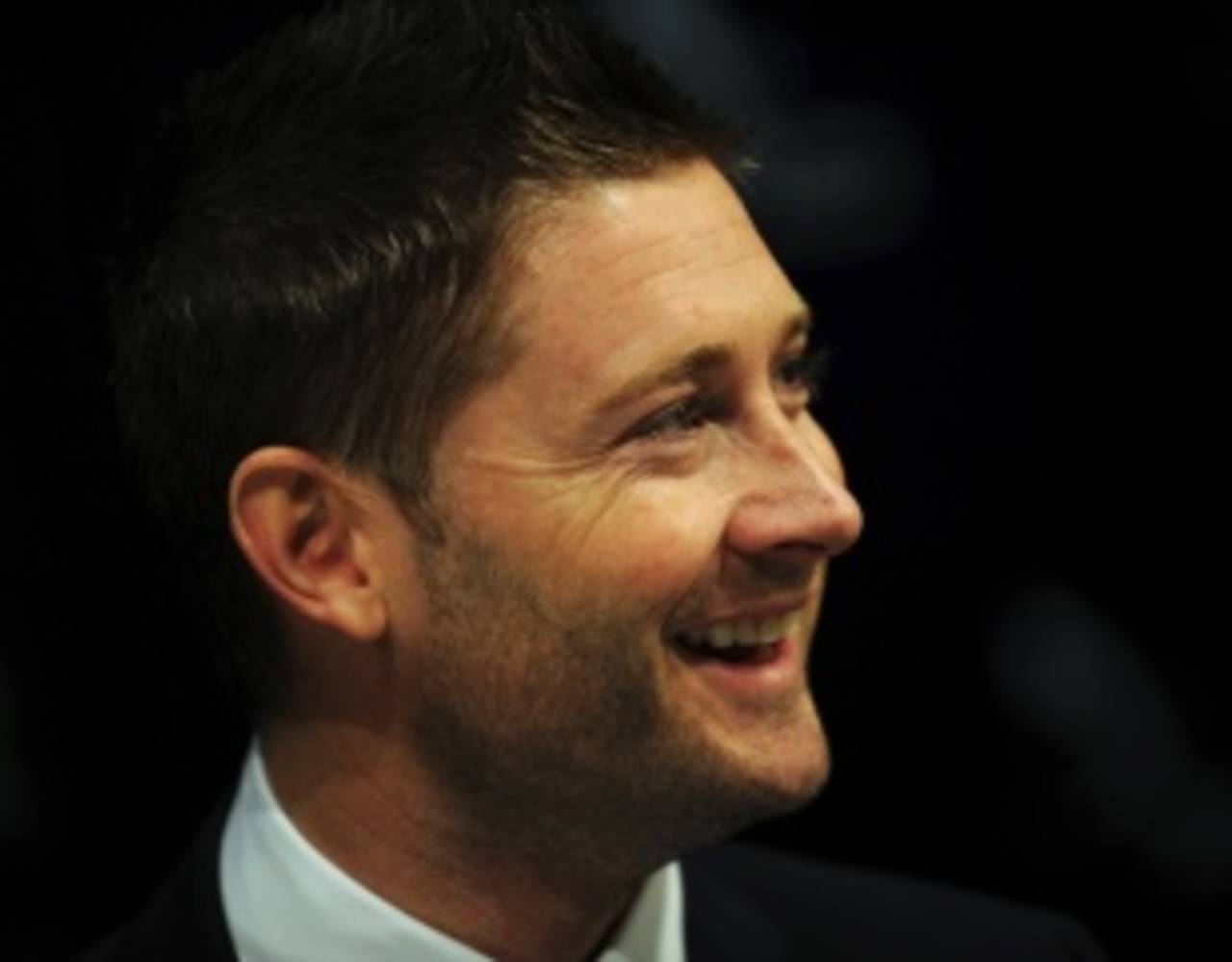The tasks of Clarke and Dhoni
The Australia and India captains are living two different stages of a team's life cycle. Their contest in the upcoming series will be intriguing
Harsha Bhogle
16-Dec-2011

Michael Clarke: only the sixth Australian Test captain in 25 years • Getty Images
Over 25 years Australia have only had six Test captains. It is a staggering number, one routinely buried amid the rather more mundane records that pop up every half hour. In comparison, India have had 11 in the same period, though there has been far greater stability in the second half of that interval. What this tells you is that Australia have not only picked captains with care but have also chosen the right moment.
From Allan Border to Michael Clarke is quite a story, but it is not one of regular linear progression; no, life doesn't move in simple, straight lines. Instead, it is one of astonishing leaps forward - every captain stamped his personality on the job - and, a bit like in a one-lap race, an eventual return to the starting point. Border inherited a team in disarray. His predecessor, a tremendous cricketer sacrificed to the captaincy, in the eyes of some, quit in tears. The backroom boy was called up and Australia rebuilt, putting attitude first, and picking men of character, substantial people.
We can sometimes cast a superficial eye on the past, but those were the real building years, and those who picked the players can take as much credit as the players themselves. Mark Taylor, born to lead, and Steve Waugh took them far ahead of the opposition; one with flair, the other with a tinge of ruthlessness. Outstanding cricketers were sprouting everywhere and Australia grew strong by the day, almost like the dollar does against the rupee these days.
But the history of cricket tells us that one great generation eventually cannibalises another, and Ricky Ponting was given the job of proposing the vote of thanks for one of the greatest eras in world cricket. It is sad if that is all he is remembered for, because he is one of the game's greats, but it had been willed that way. As he benefitted from being part of an extraordinary set-up, so too did he have to bear the brunt of its inevitable by-product: all things that go up must come down. It is the cycle of life itself.
Border did not have to sit in judgement over a Greg Chappell as Clarke might just have to with Ponting, a player and leader he always looked up to
Now Clarke stands where Border stood 26 years ago. He is a product of a different era and is vastly different in personality. Clarke is outgoing, aggressive and looks like he wants to be a leader. Border was defiant, steely and had to grow into the job. But there is one other major difference. Border did not have to sit in judgement over a Greg Chappell as Clarke might just have to with Ponting, a player and leader he always looked up to. Australia's great strength has been its ability to say goodbye at the right time, as they did with Healy, the Waughs and Gilchrist.
And as he contemplates a series against India that can only be more cheerful than the one played in 2007-08, Clarke will look at his side and wonder why the runs don't seem to correlate well enough with the pedigree on offer. Luckily he has a group of young fast bowlers that he could fall back upon, and indeed, the clash of fiery, impatient youth with calm, phlegmatic experience will be the highlight of this series.
There is no Pat Cummins, cruelly laid low by injury so early in his career, but Pattinson, Starc, Siddle and Harris, a peculiar alloy of the robust and the fragile, will be a handful. Clarke has to give them wings, let them flutter and fall occasionally for Australia's future seems to lie with the ball rather more than with the bat.
His opposite number doesn't have quite the same issues on hand. Dhoni has inherited a side moulded by Ganguly, Dravid and Kumble, and he has lent stability to Indian cricket, where once a captain was forced to look back as often as he tried to look ahead.
Dhoni's real challenge will come in 12 months, when the stalwarts start to say goodbye to astonishing careers. It might have happened by now elsewhere, but in India we err on the side of the status quo where Australia tend to cull and move on. The status quo, unlike in public policy and economic affairs, where it has been a disaster, has actually served India quite well, with Tendulkar shrugging off an indifferent spell with aplomb and Dravid peeling back the years with dignity.
Even though Dhoni arrives in Australia with the wounds of the England tour still raw, and with bowlers breaking down either side of making the flight, he knows what it is to win for he has done so in every form of the game. His side is quite at contrast to Clarke's for he has depth in batting but still no precise idea of whom to throw the new ball to on Boxing Day. His great strength has been in managing a side that has in it those he idolised. It couldn't have been easy but those idols too are men of some class. He sits rather more comfortably on his perch than does Clarke. It is a series to savour.
Harsha Bhogle is a commentator, television presenter and writer. His Twitter feed is here